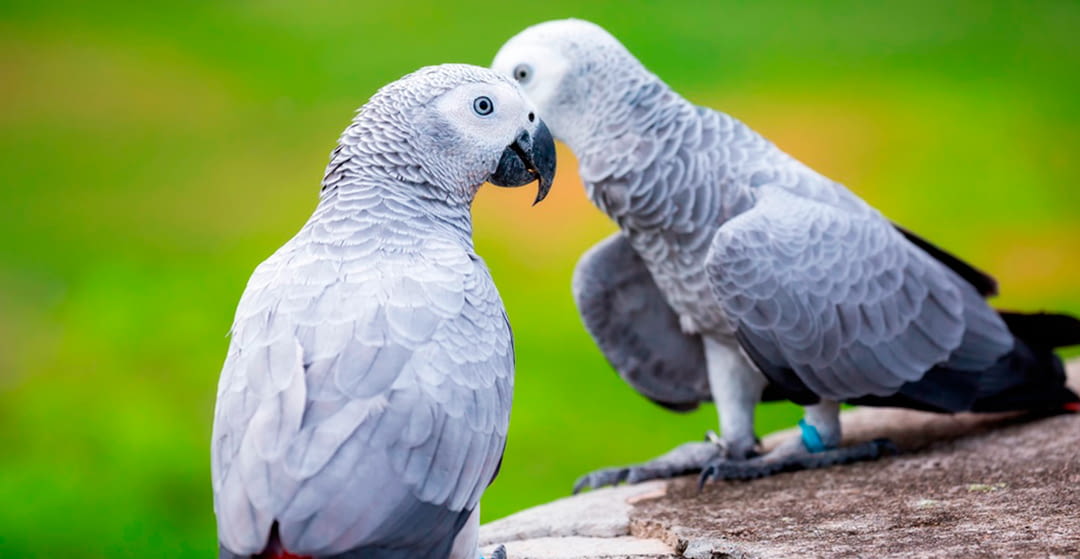
The yacos are a species of tremendously intelligent parrots, so much so that they are known as the Border Collie of parrots and whose intelligence could go beyond that of the dog.
Parrots and all psittacines in general are animals whose maintenance and well-being in captivity is not an easy task. They require stimulation that we could say is above average and somewhat complex daily routines that are accentuated in the case of living with Yacos.
INTELLIGENCE
The Yaco, also known as the African red-tailed parrot, is a medium-sized parrot, around 400-500 grams; It is a super intelligent animal (above the average for parrot species) very social and with extraordinary learning abilities, which is why it is normally the preferred species to carry out studies and tests with them.
It also has an incredible ability to imitate, and some can even develop a large vocabulary, which has made it a very popular animal in homes.
COMPANY AND STIMULATION
They are highly social birds. Ideally, if you decide to commit to maintaining and living with one, you should bring two home, as long as you have the space and resources.
They usually live to be 50 years old, so it is a long-term commitment, and they need quality time and attention from their owners and daily interaction with them, talking to them and playing with them. They demand to be busy all their time, which makes their attention and care more difficult than in other species.
Therefore it is important to provide safe and stimulating toys to prevent boredom. It is very important that they have things to do and a busy mind. For this, apart from the usual environmental enrichment, a good resource is to have small training sessions with him.
These training sessions can be made up of teaching them routine actions such as entering the carrier (for when it is convenient to take it to its routine visit to the vet), accustoming it to nail filing, taking medication, among others.
On the other hand, they can be taught less useful tricks like repeating or imitating words or having them do little puzzles.
Ruts will become very rewarding as they are very affectionate birds and can form strong bonds with their owners, becoming loyal and loving companions if given proper care and attention.

FEEDING
They need a balanced three-part diet that includes a variety of fresh fruits, vegetables, high-quality feed, and some extra feed like seed mixes.
They tend to like nuts such as peanuts and walnuts a lot, which can be administered with an interactive game that encourages them to look for the nuts inside, always making sure they don't get hurt, obviously.
Considerable attention must be paid to the lack of vitamin D and calcium, which does not differentiate it from other species but is common in them, as is the case with vitamin A, which is higher in Yacos than in other varieties of parrots.
HYGIENE AND OTHER CARE
It is obvious that you have to have a perfect control of your regular visits to the vet (and if it is specialized in birds much better) for your health checks and vaccinations. We have to keep in mind that parrots are experts at hiding signs of illness, so veterinary check-ups are essential.
Giving them a regular bath will take care of their feathers, whether it's using a water spray or a shallow tub for them to enjoy the water. In addition to the periodic nail filing mentioned, it is important to provide them with branches so that they can file their nails and also their beak naturally.
THE HABITAT
They must be provided with a cage large enough for them to move freely, spread their wings and play. The cage must be at least twice the size of its wingspan to allow for a short flight.
Ideally, and if possible, it is to install them in an adapted aviary or an adapted room, a larger space lends itself more to being better enriched and it will be easier to vary its elements than in a smaller one.



